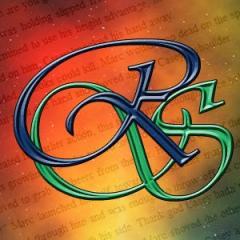Writing Tip Writing Tip: Story Cost.... More Or Less
So, I was looking through some of the blog articles that I have and was trying to decide what would be a good choice for Wacky Wednesday. It was a hard choice, to be honest, but then I came across this little gem. Since I don't want to give too much away, I'll just let you see for yourself what I found...
Story Cost... More or Less
by Cia
Yes, we're putting a price on stories. No more free fiction.
*snickers*
Are you getting ready to flame me? Okay, okay, we're not going to stop anyone from posting free stories or anything.
However, I did want to share some thoughts I recently had on 'fifty cent' words and their place in fiction. These so called fifty cent words are ones that catch your eye, the big words full of rich meaning in the English language (or whatever the author writes in).
So many times I see a story littered with them with every sentence structured to feature the words that jump out at readers, sometimes even hosting two or three of them! I guess to some that's a good thing. They like to use those fifty cent words, thinking they increase the worth of their story.
For example: "Oh, how spectacular," she exclaimed fervently, enthralled by the landscape when she beheld the vermillion flowers carpeting the verdant meadow.
Now, my writing is all about entertainment. I'm after the picture, not the words, to be memorable for my readers.
I'm not trying to enlighten anyone when I write, I'm trying to entertain. For my style bigger is not better. I made those mistakes at first, throwing out the unusual words with great shades of meaning, but those become annoying and difficult to wade through for the average reader. Sure, there was little confusion for those of us who grew up reading the dictionary for fun, but for the other 99% of readers it isn't nearly as enjoyable. (Yes, self-confessed geek here, lol)
I came to a decision. My goal is to always make the words in a story as invisible as possible. That means using simple phrases and key words everyone knows to create vivid images in the reader's mind. I'm a big fan of 'nickel words' of the fiction world you might call them. I don't want my writing to get in the way of my story, so I streamline visuals and add only the essential descriptions.
Or you could just call me cheap!
For example: "Oh!" Her bright smile lit up her eyes. She gripped his hand as she stared, taking in the ruby red flowers carpeting the lush meadow.
The second example is simpler but very visual and still rich with meaning. I use the word ruby to evoke a vivid red color everyone knows, and since most people already think of meadows as green, I used lush. It works since we usually relate the word to something really rich with gives a visual of a green meadow with a ton of plant life and flowers. I also avoid the speech tag and instead show her reaction with visual cues, so the reader can see how she feels and, therefore, get a better 'picture' than if I tell them she's excited.
Now, I'm not saying using big words is wrong all the time, or that they can't enhance a story. You might have a discussion between two doctors, for example, and they'd logically use more technical words than the average person--depending on the discussion. A story set back in the Victorian era would also be more adaptable to a flowery turn of phrase because that is the expected speech pattern of the time.
But for regular ole entertaining stories, the kind I enjoy presenting to my readers, I think I'll stick to my trusty nickel words!
-
 4
4






10 Comments
Recommended Comments
Create an account or sign in to comment
You need to be a member in order to leave a comment
Create an account
Sign up for a new account in our community. It's easy!
Register a new accountSign in
Already have an account? Sign in here.
Sign In Now